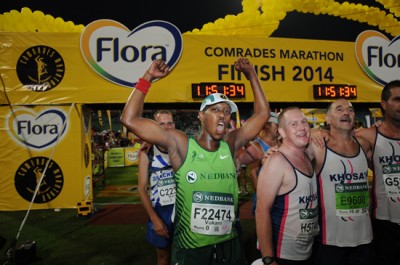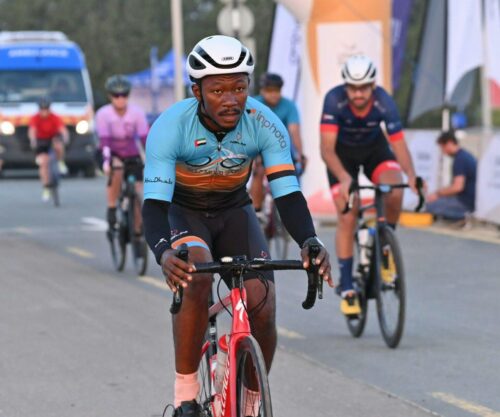
We chat to Vukani Makalima, who is taking part in his second Comrades Marathon. He will be raising money for a charity that helps people that are as passionate about running as he is.
 When did you start running and why?
When did you start running and why?
I have always been an active person, even though I had a few slow years where I gained weight and stopped going to gym. I officially started running in 2009; I couldn’t even complete a 5km. I didn’t give – I went from struggling with 5km to 10km, then 21km and then eventually a full marathon.
Why did you choose to run the Comrades Marathon and what advice would you give to someone who wants to do it?
They don’t call it the ultimate human race for nothing. This is a test of spirit, personal ability, and mental strength. You are running 90km, which could be 8hours or more, that’s a lot of time on the road. I initially started out of curiosity; it was a goal that needed to be achieved and then became a quest in order to raise funds for charity.
Does a long-distance runner’s diet differ from a regular active person?
Any person living healthy and being active should have a primary diet that has a low intake of carbohydrates, high in greens (vegetables), limited amount of sugar and a lot of protein. Protein will help speed up your metabolism and this will help your body burn fat faster. You don’t need to avoid fat because your body needs good fats, such as avocado, but do avoid processed oils because those are bad for the body. Being healthy requires discipline to help you stay on track.
Any tips for beginners?
Get yourself a running programme to help you build up your strength and ability to run. They are free and usually available on websites, running papers and at races. You won’t be able to run a full marathon, which is 42km but you will be able to do a short distance. Start small, pace yourself and allow your body to get use to running before progressing into long distances.
What do you need to do the day before a race?
Always rest and avoid being on your feet. Your body needs to rest because a long distance race usually leaves it injured on different levels. A deep tissue massage is always great because it relaxes your muscles before the race. Start carbo loading (eating food that is high in carbohydrates such as rice, pasta) 12 to 18 hours before your race to help your body use it as energy during the race. Take all essential nutrients to help boost your body.
The day after the race…
Everyone has different levels of injuries but it’s always important to rest. That’s why they always say wait a year between major races to help your body recover. Soak and treat your muscles to help them relax and repair. Don’t overeat with a mind that you didn’t eat as much during the race. Your body will take all the nutrients needed from your regular diet.
Make your donation to Sport Trust fund
Nedbank
Branch: Rosettenville/The Glen
Branch code: 19 15 05
Account: 1915 104 696
REF: Vukani






